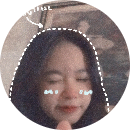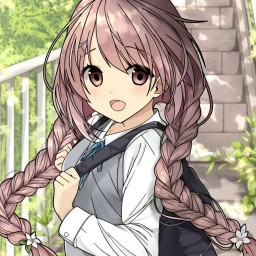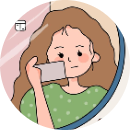Part I. Fill in each gap with ONE suitable word to complete the following paragraph. (20 points)
Our classes take place for three hours every morning from Monday (1)............. Friday. The maximum class size is twelve (2) .............. the average is ten. We use modern methods of (3) ............. and learning, and the school has a language laboratory, a video camera and recorders. However, you will only be successful in improving (4) ............. English if you work hard and (5) ........ speaking English as much as you can. You will take a short (6) ............. in English as soon as you arrive. In this way, we can put you in a (7) ............. at the most suitable level.
There are two classes at the Elementary level; one is for complete beginners and the other is for students who know only a little English. In both classes you will practise simple conversations. In the class (8) ............. the intermediate level you will have a lot of practice in communication in real-life situations because we help you to use the English you have previously (9) ............. in your own country, You will also have chances to improve your (10) .............. of English grammar and to build up your vocabulary...
Your answer:
Part II. Choose the correct answer A, B, C or D that best fits each of the blank spaces. (10 points)
Around the age (1)……. sixteen, you must make one of the biggest decisions of your life. Do I stay on at school and hopefully, go on to university later? Do I leave and start work or beginning a training (2)………?
The decision is yours, but it may be (3)……. remembering two things: There is more
unemployment (4)………. those who haven't been to university, and people (5)………. have the right skills will have a big advantage in the competition for jobs. If you decide to go straight into a job, there are (6)………. opportunities for training. Getting qualifications will (7)………. you get on more quickly in many careers, and evening classes allow you to learn (8)………. you earn. Starting work and taking a break to study when you are older is (9………. possibility. This way, you can save up money for your student days, as well as (10)………. practical work experience.
1. 2. 3. 4. 5. 6. 7. 8. 9. 10. | A. at A. school A. worth A. between A. whom A. much A. permit A. where A. also A. getting | B. in B. class B. necessary B. among B. which B. many B. help B. while B. again B. making | C. on C. course C. important C. with C. who C. little C. let C. when C. another C .taking | D. of D. term D. useful D. through D. whose D. few D. give D. what D. always D. doing |
Your answer:
Part III. Read the passage below and choose the best answer A, B, C or D. (10 points)
THE GREAT HANSHIN EARTHQUAKE
The Great Hanshin earthquake, or the Kobe earthquake as it is more commonly known overseas, was an earthquake in Japan that measured 7.3 on the Japan Meteorological Agency magnitude scale. It occurred on January 17th, 1995 at 5:46 a.m. in the southern part of Hyōgo Prefecture, and lasted for approximately 20 seconds. The epicentre of the earthquake was on the northern end of Awaji Island near Kobe, a cosmopolitan city of over 1.5 million people. A total of 6,434 people, mainly in the city of Kobe, lost their lives. Additionally, it caused approximately ten trillion yen in damage. It was the worst earthquake in Japan since the Great Kantō earthquake in 1923, which claimed 140,000 lives.
1. The word ‘overseas’ in the text is closest in meaning to __________.
A.abroad B.at sea C.by sea
2. The word ‘occurred’ in the text is closest in meaning to __________.
A.ended B.happened C.started
3. It is stated in the passage that the number of deaths in the city of Kobe __________.
A.was greater than that of the Great Kantō earthquake
B.was not as high as in the Great Kantō earthquake
C.exceeded that of any known earthquake
4. The northern end of Awaji Island was the place where __________.
A.the effects of the earthquake were felt most strongly
B.there was no damage to people and property
C.1.5 million people lost their lives
5. We understand from the passage that the Kobe earthquake __________.
A.is internationally known as the Great Hanshin earthquake
B.didn’t cause any damage in the neighbourhood of Kobe
C.is not the deadliest earthquake in the history of Japan.
Your answer:

























